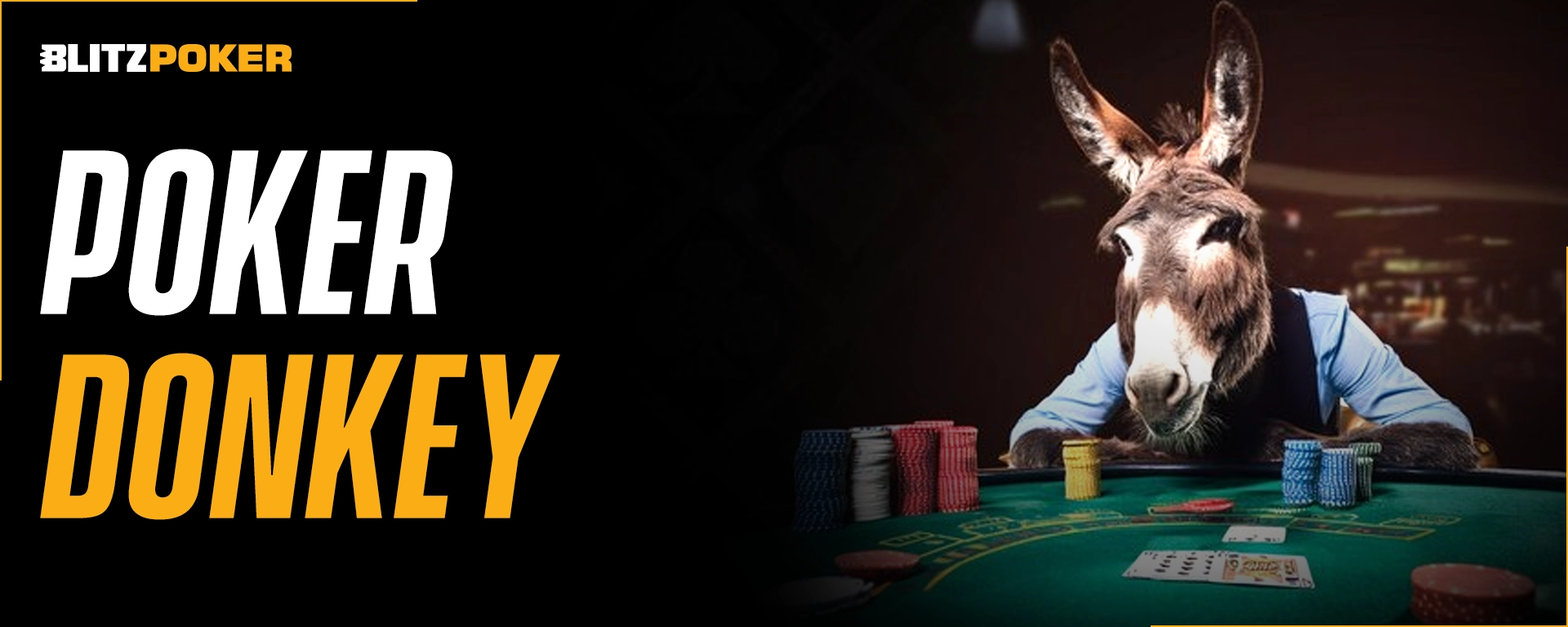In simpler terms, “donkey” is slang for a player who lacks experience, acts recklessly, or consistently makes questionable decisions at the table. Such players can often frustrate more seasoned opponents, as their unpredictable style does not adhere to conventional strategy or logic. However, facing off against donkeys can also create valuable opportunities for skilled players to take advantage of their weaknesses and turn their mistakes into profitable outcomes.
Identifying a Poker Donkey
- Overplaying Weak Hands: Donkeys tend to play hands with low odds of winning, such as 7-2, instead of folding.
- Excessive Talking: They may talk too much at the table, often discussing past hands or revealing information about their playing style.
- Celebrating Bluffs: Donkeys frequently show their cards after successfully bluffing and often boast about their wins, indicating a lack of understanding of strategy.
- Calling Too Often: They call most hands regardless of their cards or position, showing little regard for hand strength or strategy.
- Frequent All-Ins: A donkey may go all-in often, whether bluffing or with only moderately good hands, without assessing the situation properly.
- Poor Positioning: They might make raises when not in a favourable position, failing to recognize the benefits of playing strategically from various positions.
- Overusing Bluffs: Donkeys may attempt to bluff too many times, not understanding that successful bluffing requires careful consideration.
- Going on Tilt: After losing a hand, they often become emotional and make erratic decisions, indicating they cannot handle losses well.
Donkey in Poker FAQs
What Does a Donkey Mean in Poker?
In poker, the term “donkey” refers to a player who makes poor decisions and often plays recklessly, without much understanding of the game or strategy. A donkey is someone who overplays weak hands, chases unlikely draws, and generally makes mistakes that more experienced players would avoid. They can be frustrating to play against because their unpredictability can sometimes lead to unexpected wins.
What Is a Fish in Poker?
A “fish” in poker is similar to a donkey, but the term generally refers to a player who is less skilled or inexperienced. Fish tend to lose money over time because of their poor understanding of poker strategy. They might play too many hands, call bets they shouldn’t, or fail to fold when it’s clear they’re beaten. Stronger players aim to exploit these weaknesses to win money from fish.
Does the Concept of Donkey Apply to All Variants of Poker?
Yes, the concept of a donkey applies to all poker variants. Whether you’re playing Texas Hold’em, Omaha, or any other poker game, you’ll encounter players who lack a solid understanding of the game and make poor decisions. These “donkeys” tend to play recklessly and without much consideration for odds or strategy, making them vulnerable across different formats.
How Do I Play Against a Donkey in Poker?
Playing against a donkey can be tricky, but the best approach is to remain patient and disciplined. Donkeys tend to make mistakes, so it’s important to avoid getting caught up in their chaotic play. Stick to solid hands and don’t bluff too often, as donkeys are more likely to call even when the odds are against them. When you have a strong hand, bet aggressively to extract value from their mistakes. Ultimately, they will give you opportunities to win if you remain steady and capitalise on their errors.
How Do I Identify a Poker Donkey?
A poker donkey can be identified by their erratic and often illogical play. Some common signs include:
- Overbetting or calling large bets with weak hands.
- Playing far too many hands, even when it’s clear they have poor odds.
- Chasing draws that are unlikely to be complete.
- Failing to adjust their play based on the situation or their opponents.
- Bluffing too much or not bluffing at all. When you notice a player consistently making these kinds of mistakes, they’re likely a donkey. Keep an eye out for patterns in their behaviour to exploit their weaknesses.
